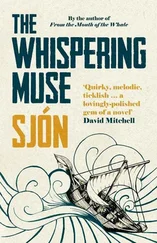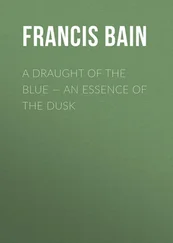He reacted quickly, testing whether this was really the case; he thundered all the verses of Jochumsson’s ‘Song of Praise’ to himself — and, would you know it? once he had finished the rendition he couldn’t remember a thing.
Then he came to Reverend Gisli’s verses.
***
SHOPPING LIST FOR THE MERCHANT’S
Paper and ink and pens and wax,
raisins and prunes and hemp and flax,
baccy, pepper and camphor oil,
a hundredweight of coffee, hooks and foil,
anvil, window glass, fencing twine,
ginger and rum and good red wine,
from this my need will be quite plain,
the day I meet old Thorgrimsen.
Now my wife comes after, to wit,
and buys a cask of aquavit,
silk cloth, soap, a whistling kettle,
six plates, a chamber pot of metal,
cards and baubles, a cinnamon roll,
she buys as if for life and soul,
I think that if she had her way,
she’d take the merchant any day.
***
The poem droned c-c-constantly in the m-man’s h-head like a fly under glass, with-without his being able to resist it. H-he was b-both h-hot and c-cold, ice-hot and boiling-cold at o-once. He t-tried what he c-could to recall oth-other stohories, oth-other p-poems, but it was all-all lost and forgotten, lohost and for-gotten from his deep-frozen memory, he w-was st-stuck with this on h-his b-b-b-boiling b-brain:
Oh, o-o-oh, h-how sham-shaming to d-die with this ab-absurd shopping list, shohopping list, o-on, on m-my li-hip-lihips, thought the pre-pre-hiest.
He p-pursed to-togehether his m-mouhouth to p-prevent, his, his d-dying wohords fr-from behing, for example: ‘a hundredweight of coffee’. Though ih-it w-was truhue that-that he had no-ho witness to his hour of deheath b-but ‘Aitch Tee’ — the H-holy T-trinity — he didn’t ca-hare. And j-just f-for a m-moment, Reverend Baldur f-felt s-s-sorry for h-hims-self, self.
H-he wh-whispered to-the dark-darkness:
‘Thi-his is an ug-ugly h-hole…’
He felt instantly better.
He closed his eyes.
And awaited his death.
‘Ho! Reverend Baldur! Baldur Skuggason! Ho!’
The calls which carried to the ears of the dying man sounded as if they came from the belly of a whale; the voice was muffled, and distance even made it, if anything, even shriller:
‘Ho, Reverend Baldur, ho!’
The priest was jolted out of his deathly lethargy:
‘Ho! I’m here! Ho!’
He fell instantly silent to listen for a response:
‘Ho! Ho! Ho!’
He tore off his balaclava and turned his right ear to the livid ice wall, but heard nothing — he turned the left ear: not a sound.
‘Down here! Ho! Down here!’
He shouted and yelled, then pricked his ears, moving with great care so the creaking of his leather clothing would not drown out any noises from outside. Yes! There it was; nearer. A reedy voice was calling:
‘Are you there? Ho!’
‘HO! HERE! HO!’ Reverend Baldur howled with all his life and soul.
***
‘Do you want to deafen me?’
Reverend Baldur’s heart missed a beat. The enquiry did not come from some searcher outside on the snowfield, no, the impertinent enquiry came from someone inside the fissure with him, and not only inside the fissure with him, but right up against him, or to be more precise, from inside his own clothes.
The priest squawked with terror when the vixen stirred at his breast. He writhed on his wet pallet, tearing off his leather coat with such violence that the whalebone buttons popped off and were lost. (Which was a great pity as they were fine articles which Haraldur, Reverend Baldur’s half-brother, had carved with his own hand and given him as a confirmation gift.)
The vixen sprang forth on to the floor of the cave. She spun in a circle, plumped down on her rump — and began to lick herself like a house cat.
***
Reverend Baldur was quick to recover, a man with a priestly training; the naturalist rose up in him. He watched the beast’s behaviour with scientific detachment.
She was damn sprightly, considering she had been out cold for six days and nights. It was ridiculous how she worked away at herself so frantically. She licked the bloodstains from her pelt and bored her muzzle to the roots of her fur, gnawing at herself as if she were de-lousing for Doomsday.
The nature-observer shut one eye.
‘Look at the creature, faugh!’
He slapped his thigh.
‘Hah, a vampire drinking its own blood!’
At that point the vixen spat out the first piece of shot. It pinged against the priest’s cheek. He moaned aloud and swore. But the vixen ignored him. She continued to preen herself until she had cleaned from her flesh all that the rifle had delivered to her: bloodstained lead ricocheted around the fissure, and great sparks flew from the rock where the shot struck.
The priest was hard-pushed to avoid the hail of lead that whined around him like a swarm of midges.
***
The vixen now began to pace back and forth, to and fro, here and there. Reverend Baldur sat quietly in his place, with his hands in his lap. He avoided meeting the beast’s eyes; it seemed edgy and incalculable.
Time passed.
At first light next day the vixen stopped and said:
‘Well, Parson, what do we do now?’
‘We could argue,’ he answered.
‘What should we argue about?’ she asked.
‘Electricity,’ said the priest.
The vixen regarded him as if he were a fool:
‘If you think a wild beast like me knows the first thing about electricity, you’re sadly mistaken…’
But Reverend Baldur was so insistent that he suggested to the vixen that if she could solve a riddle he knew, she would be allowed to decide the topic of argument; if not, they would argue about electricity. The vixen agreed:
‘Out with it, then…’
‘I’m born with a loud noise, and yet I have no voice.’
The vixen took thought — for far too long, in Reverend Baldur’s opinion, but he said nothing, he didn’t dare alarm her — and in the end she gave in.
‘Do you give in?’
The priest laughed at the beast’s stupidity: ‘It’s a fart!’
And he broke wind in support of his point.
‘How predictable,’ replied the vixen, dryly:
‘Go on then, argue about electricity.’
***
By rights the electricity debate should have taken place in a grander setting than the stony crack in a glacier’s backside. The fact of the case was that Reverend Baldur had been invited to Reykjavik to talk about this interest of his at a public, advertised meeting. There he meant to oppose some Icelandic-Canadian émigré who was preaching Edison’s great tidings to his former countrymen.
If the avalanche had not taken him, the priest would have returned home to Dalbotn the morning after the fox hunt. He would have put the finishing touches on his speech and then reached the capital four days later, at noon on 15th January, and that evening he would have wiped both his nose and his arse with his opponent. By his calculations, the meeting must have taken place three days ago; quarrelling about the matter with the vixen was some compensation.
So, the priest expounded his religious theories for the beast, for against electricity he had theological arguments. These theories were highly modern, because Reverend Baldur believed in a material God, self-created, both visible and tangible — compare: ‘When it snows on man, it rains on God.’
Consequently he could not accept that electricity, which is created by the friction of the smallest atoms of the world, which form the kernel of God, should be transmitted via wires and cables, here, there and everywhere, even into factories where it would be used to drive machines which, for example, might spit out meat-balls, yes, or mustard.
Читать дальше












